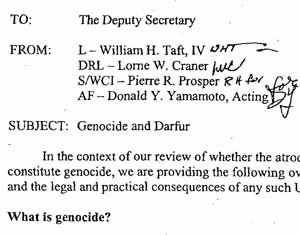Africa
Richard Seymour: Libya -- All they are saying is give war a chance

Celebrations in Tripoli following Gaddafi's retreat.
By Richard Seymour
August 31, 2011 -- ABC's The Drum -- Libya, the source of so many American nightmares, is fast becoming an American dream.
Reagan was tortured by Tripoli, and its big boss man, sassing the US. He imposed sanctions, and bombed the country, but had no peace. Bush the Younger was reconciled with the prodigal Colonel Gaddafi, but somehow this alliance seemed, well, un-American.
Obama, though, will have the privilege of being an ally of an ostensibly free Libya that he helped birth into existence. At minimal outlay (a mere $1 billion, which is peanuts in Pentagon terms), and with relatively few lives lost from bombing, a US-led operation has deposed a Middle East regime and empowered a transitional regime that is committed to human rights and free elections.
After the carnage of Iraq, such a simple, swift and (apparently) morally uncomplicated victory seemed impossible.
Lest we swoon too quickly, however, it is worth remembering that there are other ways to look at this.
As COP17 approaches: Dirty Durban’s manual for climate greenwashing

Durban’s infamous Bisasar Road dump: Africa’s largest “Clean Development Mechanism” is one of the world’s prim
Did Wikileaks reveal a US blueprint for Libya?
By Ali Abunimah
August 26, 2011 -- Electronic Intifada -- The US administrations of presidents George W. Bush and Barack Obama were set on developing deep “military to military” ties with the Libyan regime of Muammar Gaddafi, classified US diplomatic cables released by Wikileaks on August 24 reveal. The United States was keen to integrate Libya as much as possible into “AFRICOM”, the US military command for Africa which seeks to establish bases and station military forces permanently on the continent.
“We never would have guessed ten years ago that we would be sitting in Tripoli, being welcomed by a son of Muammar al-Qadhafi”, US Senator Joseph Lieberman said during an August 2009 meeting, which also included senators John McCain and Susan Collins.
Mauritius: Marxism, ecology and the contribution of John Bellamy Foster

By Lalit de Klas
June 2011 – Lalit [the revolutionary socialist party in Mauritius] sees the natural universe, whether it be the air above us, the sea around us or the Earth we walk upon, and all that lives upon it, and even outer space, as being our collective heritage as human beings. We are part of it, and also the guardians of it. This natural universe, our Mother Earth, is now endangered.
Our planet is already suffering irreversible damage, damage so serious as to threaten the very existence of the totality of human civilisation in all its varied forms. We humans have the minds to know this.
The threat is posed by our own human-made forms of agricultural and industrial “development”. This is serious because it is our way of survival that has become this destructiveness.
The main damage has been done in the past 250 years. Increasingly serious damage is being done. And yet most of us are oblivious to it, and once we know, we are “helpless”. We sit and watch a potential meltdown of a nuclear plant in Japan, as the capitalists who run it admit their own helplessness.
Zimbabwe: Petition to drop false charges against political activists
August 14, 2011 – Links International Journal of Socialist Renewal -- The following petition is being circulated in Australia.
South Africa: ANC government shuts door on Swaziland democracy movement

King Mswati III: sitting pretty after ANC "bail out".
August 5, 2011 -- South Africa's African National Congress government has defied supporters of democracy in Swaziland and granted the repressive absolute monarchy a five-year, R2.4 billion loan. The bailout, which was announceded by King Mswati III on August 3, has been condemned by the Swazi democracy movement and its supporters in South Africa. While its conditions do not require democratic reforms, the Swazi people will be subject to harsh austerity in order for the regime to repay the loan.
* * *
August 4, 2011 -- The Swaziland Solidarity Network (SSN) is calling upon the South African government to stop dilly dallying at a time when it has a genuine opportunity to exert pressure on Swazi authorities to stop human rights abuses and end the Tinkhundla dictatorship.
South African Communist Party at 90: Is it still relevant? Two views

By Jeremy Cronin
July 31, 2011 -- Amandla! -- Mikhail Gorbachev, who presided over the liquidation of his own communist party, is not generally well regarded in communist circles. There is, however, at least one pertinent observation in his book, Perestroika. There he writes that he realised there was need for change in the former Soviet Union when the program of the party was increasingly determined by the march of the calendar, by a ritualistic commemoration of historical dates.
This weekend [July 31] the South African Communist Party (SACP) marks its 90th anniversary. But it would be a mistake for us to celebrate the occasion as mere ritual.
As a young operative I was proud of being recruited into a party that, from its outset in the early 1920s, had pioneered non-racialism -- not just in principle, but shoulder to shoulder in active struggle. It was the party that started night schools and literacy classes [for blacks].
Tunisia: Communist Workers Party holds first legal congress in 25 years
By Kal

